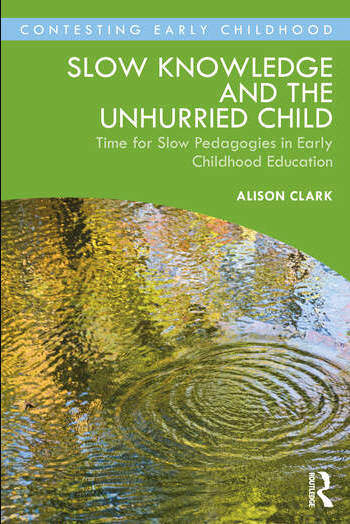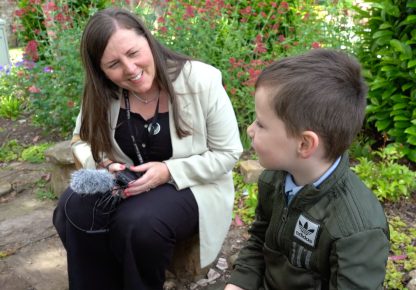Watch a new Froebel Trust short film all about slowing down our approach to early childhood education today.
Professor Alison Clark's Froebel Trust funded research explores how slowing down our approach to early childhood education can make a huge difference to the everyday lives of young children.
What is slow pedagogy?
Slow pedagogy is all about:
- valuing the present moment
- being attentive to children’s pace, rhythm and interests
- enabling children to revisit their ideas and creations, places and stories
- creating opportunities for children to go deeper in their learning
- supporting time for observation, listening, reflection and documentation
- encouraging unhurried everyday routines with time for wonder and care.
Watch our short film for educators
We've created a short film which brings the research to life and shows how three early years settings have implemented slow practice into their everyday routines.
Featured in Nursery World
Read Alison Clark's article about her research - published on 6 July 2022
Take a lookTaking time back
"My intention has not been to suggest new ways of working in early childhood education but to encourage a reclaiming of the alternatives to always fast-forward, constantly measured practices. The phrase ‘taking time back’ expresses a desire that featured in many of my interviews and in the focus group with early childhood educators and students who discussed my initial research findings. ‘Taking time back’ is part of this reclaiming, finding small ways in which this can be possible, starting with everyday routines."
Professor Alison Clark
- Find out more about Alison Clark's research 'Slow knowledge and the unhurried child' in our Froebel Trust online research library.
- You can also find out more about the Froebel Trust funded Falkirk project, led by Donna Green - supporting practitioners implementing slow pedagogy in their settings.
Alison's research links to a Froebelian approach to early education - the value of childhood in its own right and the importance of childhood experiences.
"Each individual is unique, [and] has the power to express himself in his distinctive way… Each person, each child has a particular gift which will become visible if circumstances are right and freedom for expression is given."
Froebel
Alison's research looks at a range of slow practices where there is time for both children and adults to be less hurried.
This has included the following examples where there has been time for:
- mealtimes to be important features of the day where there is time for young children to participate fully and be involved in the preparation, sharing food together and tidying up
- outdoor exploring with time to tune into the pace and rhythm of children
- opportunities for children to revisit the same environment and to develop a connection and sense of belonging
- stories to be invented, extended and reimagined many times
- unhurried personal everyday routines such as nappy changing
- exploring materials such as clay and wood that ‘hold time’ in a particular way and open up many possibilities for play and creativity
- projects to be developed to respond to children’s interests and concern and developed over time.
About Alison Clark

Alison Clark is Professor of Early Childhood Education at University of South-Eastern Norway and Honorary Senior Research Fellow at Thomas Coram Research Unit, UCL Institute of Education, London.
Alison's book Slow knowledge and the unhurried child: time for slow pedagogies in early childhood education was published by Abingdon: Routledge on 30 Dec 2022. The book is available with a 20% discount on the Routledge website with the code: AFL01

The urgency of slow
A webinar which reconsiders the relationship with time in early childhood education - recorded in November 2021. Featuring presentations from Professor Alison Clark, Professor Peter Moss, Professor Chris Pascal, Gemma Paterson, Dr Jo Albin-Clark, Dr Sharon Colilles and more.
Learn moreThe child... should know no other endeavour but to be at every stage of development wholly what this stage calls for. Then will each successive stage spring like a new shoot from a healthy bud; and, at each successive stage, he will will the same endeavour again accomplish the requirements of this stage: for only the adequate development of… each preceding stage can effect and bring about adequate development at each succeeding later stage.


